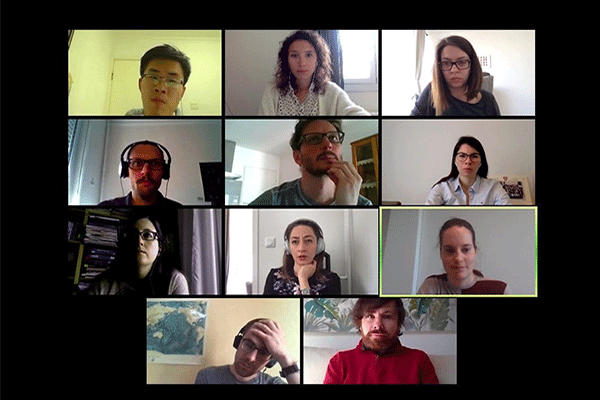23 Apr Impact of Rule Change on Policy Outputs

We are proud to share the work outputs of our Global Sustainable Leader & FWO postdoctoral fellow Angela Tacea on “Inter-institutional Power Dynamics in the European Decision-Making Process: an Analysis of the Impact of Rule Change on Policy Outputs”
The evolution of the interinstitutional balance of powers has been a constant feature of the European integration process. On the one hand, the successive constitutional treaties enforced the powers of ‘integration-minded EU institutions’ – the Commission, the European Parliament (EP) and the European Court of Justice (ECJ) – by the greater application of the traditional ‘community method’ (Dehousse, 2011) in areas where laws were primarily adopted and applied on an ‘intergovernmental’ basis.
On the other hand, the development of new areas of EU activity, such as the economic governance, the common foreign, security and defence policy as well as the social and employment policy coordination have shifted the attention of the Council from legislative decision-making in the context of community method to intergovernmental policy coordination in non-legislative decision-making (Puetter, 2014).
The proposed workshop aims to reopen the theoretical and empirical discussion about the interinstitutional power dynamics in the EU decision-making by looking at an underexploited angle of research, the impact of rule change (i.e. the empowerment of the EP, the development of non-legislative decision-making, the expansion of informal trilogues and early agreements) on policy outputs.
Indeed, if numerous studies have assessed the consequences of rule change for the interinstitutional balance of powers between the EU institutional actors and for the distribution of power within the institutions (Farrell and Héritier, 2003, Rasmussen, 2011), with very few exceptions (Ripoll Servent, 2013, Ripoll Servent, 2015, Burns, 2013), the question of how constitutional change impacts policy outputs is barely touched upon.
Have policies become more environmentally friendly or more oriented towards the protection of fundamental human rights since the ordinary legislative procedure has been generalized? What are the consequences of the rise of new intergovernmentalism on employment policies?
Shifting the attention to the role various EU decision-making methods play on policy outputs forces us to link rule and institutional change with changes in EU policies. The workshop welcomes contributions from different theoretical approaches on European integration.
Drawing on (comparative) case studies from different EU policy areas (e.g. environment, internal market, area of freedom, security and justice, economic governance etc.) and/or on quantitative and computational modelling methods of EU decision-making, the ambition of the workshop is to connect research on EU policy areas to the wider literature on EU decision-making, thus bridging the gap between empirical case studies focusing on only few salient issues and theoretically-driven analysis of the role and influence of EU institutional actors in each type of legislative procedure.

Relation to existing research:
The role and influence of EU institutional actors in each type of legislative procedure has generated a great deal of academic debate. Bargaining models, non-cooperative voting games and cooperative voting models have been used by rational choice institutionalism studies.
For example, the impact of the co-decision procedure established under Maastricht treaty on the inter-institutional balance of power between the EU institutions have been analyzed by Steunenberg (1994, 1997), Tsebelis (1995), Crombez (1996), Scully (1997b, 1997a). The co-decision procedure introduced by the Amsterdam Treaty has been subject of analysis by Steunenberg (1997), Tsebelis and Garrett (2000), Crombez (2001).
New intergovernmentalism assessed the decline of the relative importance of co-decision in post-Maastricht area (Puetter, 2014, Bickerton et al., 2015). More recently, the influence of the EP in areas where community method continues to apply, as well as in areas where it is completely left out of the decision-making has been also analysed (Schmidt, 2016, Bressanelli and Chelotti, 2018).
This extensive literature offers important insights into the interinstitutional power dynamics in the European decision-making. However, on the one side, existing studies have reached different conclusions on the effects of rule change on the legislative power of European institutional actors.
For example, while most of the formal theoretical studies on the dynamics of power between EU institutional actors argued that the co-decision procedure increased the power of the EP compared to the consultation procedure (Crombez, 1996, Steunenberg, 2000, McElroy, 2006), some scholars argued that the constitutional change weakened the legislature (Tsebelis and Garrett, 2000). On the other side, the academic literature offers limited information about the effects of the interinstitutional balance of power on policy outputs.
We know by now that the Council continues to dominate the decision-making process (Costello and Thomson, 2013) and that it can exploit co-decision in its own advantage (König, 2008, Hagemann and Høyland), but we don’t know what consequences the Council’s prevalence has on the substance of EU policies.
To fill these gaps, the aim of the proposed workshop is to explore the interinstitutional balance between the EP, the Council and the Commission by looking at: 1) the impact of rule change on institutional actors’ policy positions and 2) the capacity of the three institutions to impose their substantive policy preferences under different legislative procedures.
It does so by examining various methodological alternatives to the study of institutional preference formation. It also focuses on how to determine shifting inter-institutional influence beyond formal constitutional rules and what impact these shifts in the institutional environment have for broader questions of transparency, accountability and the legitimacy of EU decision-making institutions.
The Workshop was organized by ECPR-The European Consortium for Political Research –having as mission to advance political science.
For more information:
